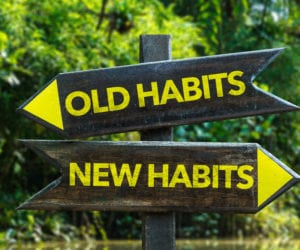Coping With Stress During Recovery

Overcoming Addiction Comes With Pressure: Learn How to Handle it
For those who have just completed their addiction treatment program and are in remission from addiction, vulnerability is imminent. This is because the recovery period has officially begun post-treatment which means stress, triggers, and pressures will be part of the everyday struggles and challenges of leading a sober life. Many who do not struggle with addiction may not fully understand how individuals who are going through addiction recovery have daily hurdles as they often assume that since treatment is completed, the individual is ‘repaired’. Sobriety does not come easily to those who struggle with addiction and these individuals must cope with various stresses that many people don’t realize.
Almost everyone knows what it is like to ‘stress’. Perhaps you stress about your career, money, family, or your relationship. Stress is something that affects an individual on an emotional and mental level. For individuals who are recovering from addiction and are at risk for relapse, stress can be far more than simply an inconvenience; it can be life-threatening.
Dealing With Recovery
For those who are recovering from drug or alcohol addiction, it’s important that you seek the help of local support groups, therapies, and treatments. This could mean attending weekly AA or NA programs, 12-step programs, or joining an alumni group. These programs allow for constant reassurance and motivation which is especially helpful in times of stress and temptation. Being around those who are going through similar struggles as yourself will help you understand that you are not alone in this battle against addiction.
Knowing and utilizing the tools of recovery are imperative to your success in sobriety. It’s important to remember that recovery doesn’t simply happen because you stopped using; you must create a new life that is free from substance abuse and continuously work on your sobriety in order for long-term sobriety to happen. If you do not work hard at maintaining your abstinence from drugs and alcohol, it will sneakily creep back into your life; this is the reality of addiction.
Avoiding High-Risk Situations
Avoiding situations that will put you at risk of relapse is a key factor in staying sober. Some risky situations or feelings that you should refrain from are:
- Feeling lonely or being alone/bored
- Feeling hungry
- Feelings of drowsiness or being tired
- Feelings of anger or resentment
It’s also important that you avoid certain people, places, and things that may trigger you to want to use again. If a situation catches you off guard and you find yourself in a trigger-like situation, it’s vital that you remove yourself immediately as one ‘slip up’ can land you right back into relapse. Avoiding these scenarios will help you create that new life that is an imperative part of your success in a substance-free lifestyle.
Recovery is about many small changes in the way that you lead your life as opposed to one huge change. A helpful hint is to make a list of situations that you should avoid and keep it with you at all times. This way you will lessen the chances of you getting stressed out because you got yourself into a situation where you can feel a trigger arising.
Learning to Relax
Another key element of a successful recovery journey is ultimately learning how to relax. By relaxing you are relieving tension and in turn, are learning to overcome and curve feelings of anxiousness and stress. Many recovering addicts find relaxation in yoga and meditation; activities that reward the brain and help to mitigate thoughts that may be stress-inducing. Relaxing will help you reduce the urge to use drugs or alcohol.
Through managing your stress and learning to relax you will be able to alter your train of thought and therefore have the capacity to sustain your sobriety. Without the proper tools and tactics, individuals may not be able to make the right decisions in times of cravings.
If you or a loved one needs help with abuse and/or treatment, please call the WhiteSands Treatment at (877) 855-3470. Our addiction specialists can assess your recovery needs and help you get the addiction treatment that provides the best chance for your long-term recovery.
